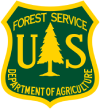Humane Wildlife Control in Scranton, PA
The Humane Wildlife Control Society recommends non-invasive solutions to resolve human-wildlife conflicts. This includes:
Determining if the issue needs to be addressed at all
Opting for preventative measures first
Opting for wildlife exclusion as opposed to trapping
If trapping is the only way to solve the problem do so humanely
The Humane Wildlife Control Society screens candidates prior to recommendation. Our process requires any company we recommend to meet the following criteria:
Is properly licensed in Pennsylvania for wildlife control
Carries appropriate business licenses and insurance
Complies with all Pennsylvania laws and regulations for wildlife control
Adheres to the humane principles listed above.
In Scranton, Pennsylvania we recommend Humane Wildlife Removal Scranton for professional wildlife control services. This is a private company that charges for their services.
Contact Information:
Xceptional Wildlife Removal
570-904-8590
If you have any wildlife issues that can be handled by the state government agency for free, the Pennsylvania Wildlife Commission can help.
State Contact Information: 570-398-4744
The State Department of Agriculture may also be able to address your wildlife problem for no charge.
USDA Contact Information: (717) 787-4737
Minimizing Human-Wildlife Conflict in Scranton, Pennsylvania: A Guide to Proactive Solutions
As the human population continues to grow and expand into natural habitats, conflicts between humans and wildlife are becoming increasingly common. In Scranton, Pennsylvania, residents are encountering wildlife such as deer, bears, and coyotes in their daily lives. While these encounters can be exciting, they can also be dangerous and damaging to both humans and wildlife. This essay will explore proactive solutions for minimizing human-wildlife conflict in Scranton, Pennsylvania.
Understanding Human-Wildlife Conflict
Human-wildlife conflict occurs when the needs and interests of humans and wildlife overlap, leading to conflicts over resources such as food, water, and space. In Scranton, common conflicts include:
Property damage: Wildlife such as deer and bears can damage gardens, crops, and property.
Pet safety: Coyotes and other predators can threaten the safety of pets.
Human safety: Encounters with wildlife such as bears and coyotes can be dangerous for humans.
Proactive Solutions for Minimizing Human-Wildlife Conflict
To minimize human-wildlife conflict in Scranton, residents can take the following proactive steps:
Secure Your Property
Use fencing: Install fencing around gardens, crops, and property to prevent wildlife from entering.
Secure garbage cans: Use animal-proof trash cans or secure regular cans with bungee cords or weighted lids.
Remove attractants: Remove potential attractants such as pet food, bird seed, and compost piles.
Protect Your Pets
Keep pets indoors: Keep pets indoors, especially at night, to prevent encounters with predators.
Use pet enclosures: Use pet enclosures or fencing to prevent pets from escaping and encountering wildlife.
Supervise pets: Supervise pets when they are outdoors to prevent encounters with wildlife.
Educate Yourself and Others
Learn about local wildlife: Learn about the types of wildlife found in Scranton, their habits, and their habitats.
Share knowledge with others: Share knowledge with neighbors, friends, and family to promote a culture of coexistence with wildlife.
Participate in community programs: Participate in community programs and events that promote wildlife conservation and education.
Support Wildlife Conservation Efforts
Support local wildlife organizations: Support local wildlife organizations and conservation efforts.
Participate in citizen science projects: Participate in citizen science projects that help monitor and manage wildlife populations.
Advocate for wildlife-friendly policies: Advocate for wildlife-friendly policies and practices in your community.
Conclusion
Minimizing human-wildlife conflict in Scranton, Pennsylvania, requires a proactive and community-based approach. By securing your property, protecting your pets, educating yourself and others, and supporting wildlife conservation efforts, you can help reduce the risk of human-wildlife conflict and promote a culture of coexistence with wildlife. Remember, preventing conflicts is always better than reacting to them. Take action today to protect both humans and wildlife in Scranton, Pennsylvania.







